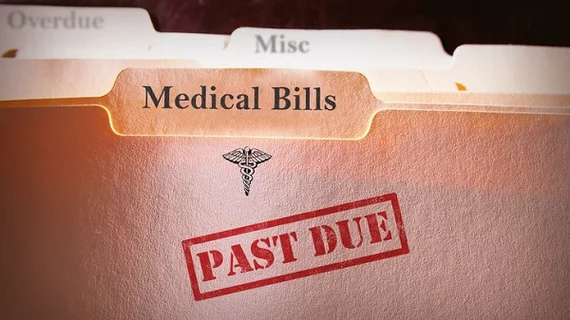The American Heart Association (AHA) is highlighting its full support of the No Surprises Act and calling for lawmakers to ensure patients receive “the protections they were promised from financially devastating surprise medical bills.”
The No Surprises Act, designed to help patients avoid receiving unexpected medical bills after being treated by out-of-network physicians, was part of the Consolidated Appropriations Act of 2021. It is scheduled to take effect on Jan. 1, 2022.
“Patients must be able to focus on their urgent medical needs and recovery—they shouldn’t have to worry whether they’ll be able to afford unexpected care not covered by insurance,” AHA CEO Nancy Brown said in a statement. “The No Surprises Act promises to make a truly meaningful difference for the millions of patients who will benefit from these new protections starting in the new year.”
In a new letter directed toward the Biden administration, the AHA shared a full list of features it hopes to see in the final act once it goes into effect. That list included “a robust patient education campaign” and independent dispute resolution process that can “produce reliable and consistent results.”
“As an advocate for patients, many of whom have received a surprise bill, we have urged the administration to develop regulations that will ensure that the NSA achieves its original intent by removing patients from payment disputes, shielding them from surprise medical bills and ultimately protecting patients from increased out-of-pocket costs and increased premiums,” the group wrote in the letter. “As drafted, we believe that the interim final rule achieves these important goals.”
Not everyone agrees
Many industry groups—including the American Medical Association (AMA), American Hospital Association, Federation of American Hospitals, American College of Radiology (ACR) and others—have spoken out against the No Surprises Act, saying it protects insurance providers while putting healthcare providers at a significant disadvantage. The AMA and ACR, in fact, are reportedly considering legal action over the legislation, though no lawsuits have been formally finalized.
Some members of Congress, it turns out, have also changed their tune on the No Surprises Act, with 150 members urging the White House to change course less than a year after it was signed into law.

